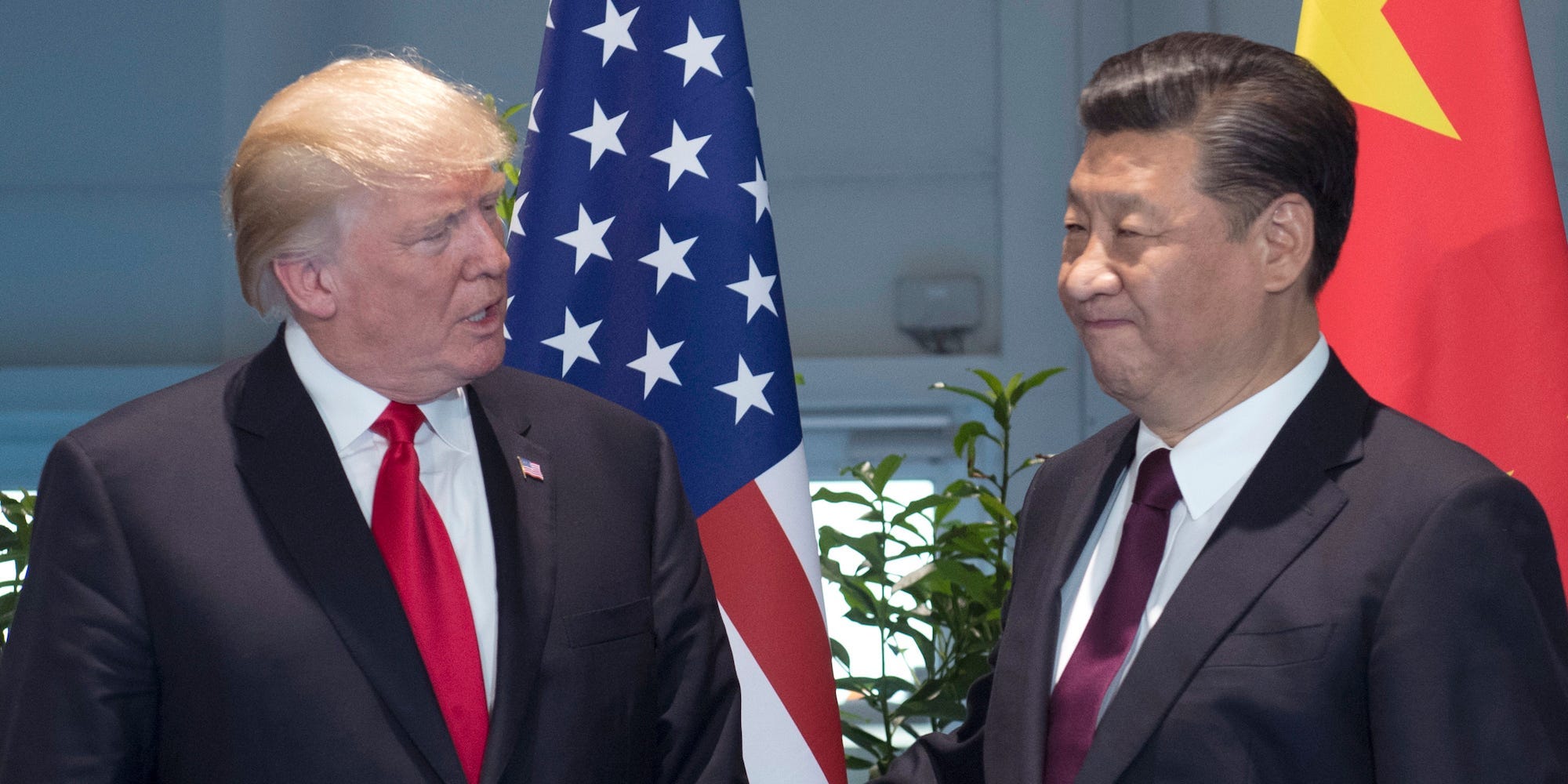
AP/Saul Loeb
- The World Trade Organization ruled Tuesday that the US’s tariffs on Chinese goods violate international trade rules, according to Bloomberg.
- Three panelists found that the Trump administration’s tariffs on more than $400 billion of Chinese exports unfairly targeted the country and skirted the WTO’s dispute settlement body.
- The decision serves a major hit the tough-on-China stance President Donald Trump ran on in his 2016 campaign and continues to evoke heading into the 2020 US presidential election.
- Still, the administration’s previous gutting of WTO’s appellate body effectively allows the US to veto its ruling and avoid enforcement.
- Visit Business Insider’s homepage for more stories.
The World Trade Organization ruled that US tariffs on more than $400 billion of Chinese goods violate international trade rules, Bloomberg reported Tuesday.
A panel of three trade experts found the US broke WTO rules when it set tariffs on Chinese goods starting in 2018. The ruling backs China’s argument that the US unfairly skirted the WTO’s dispute settlement process. Members of the global trade coalition are expected to negotiate with the WTO’s dispute settlement body before imposing retaliatory tariffs.
China also argued the Trump administration’s tariffs unfairly targeted a single country, instead of setting an even playing field for the US and its trade partners.
Though the decision backs China’s claims, the White House isn’t likely to face much backlash. The Trump administration can appeal the ruling over the next 60 days. Doing so will effectively nullify the WTO’s ruling, as the administration previously gutted the organization’s appellate body. The WTO now lacks a sufficient means for hearing appeals, freezing its dispute settlement system and endangering the organization’s ability to enforce trade rules.
The ruling strikes a major blow to President Donald Trump's tough-on-China strategy just a few months before the 2020 US presidential election. Trump has repeatedly touted the trade war as a boon for American farmers and manufacturers, and knocked Vice President Joe Biden as having too lax an approach toward China.
The WTO decision comes more than two years after the Trump administration sparked a trade war between the two economic superpowers. The White House began by imposing tariffs on solar cells and washing machines in January 2018. The president tweeted in March of that year that trade wars "are good, and easy to win," before slapping tariffs on steel and aluminum imports.
China fired back the following month, cementing the trade war as a staple issue of the Trump presidency.
The two nations inked a "phase one" trade deal in January, marking the first major step toward deescalating the years-long conflict. Yet the coronavirus pandemic has stalled attempts at additional progress and weakened China's ability to meet the deal's purchase targets.
This is a breaking story. Check back later for updates.

